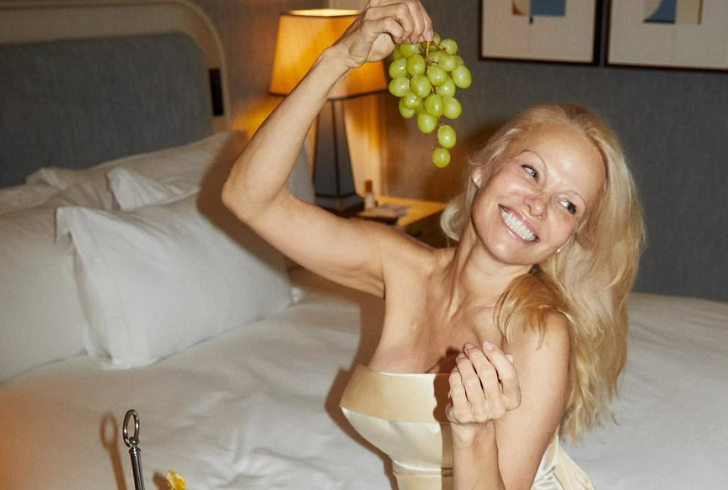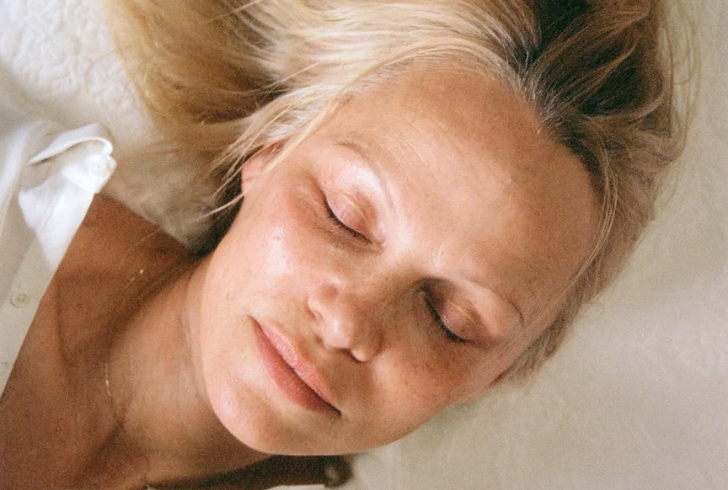Pamela Anderson has always been a cultural icon, known for her stunning looks and signature makeup style during her time on “Baywatch.” However, her recent decision to step onto red carpets without makeup has sparked discussions about beauty, aging, and self-confidence.
At 57, Anderson’s bare-faced appearance has drawn both applause and criticism, but it has undeniably challenged traditional beauty norms.
A Shift Toward Natural Beauty
Pamela Anderson explained that her decision to go makeup-free stems from several reasons, including the passing of her makeup artist and her desire to challenge societal beauty standards. At the 2024 Gotham Awards, she shared, “I love to wear makeup too sometimes. It has a time and a place.” Her message is clear: beauty doesn’t have to rely on cosmetics, and feeling comfortable in one’s own skin is just as empowering.

This bold move has resonated with fans and colleagues alike. Jamie Lee Curtis, Anderson’s co-star in “The Last Showgirl,” even shared a bare-faced selfie as a tribute. While not everyone has embraced Anderson’s choice, many see her as a role model for promoting authenticity.
Why Women Are Redefining Beauty
Societal pressure to wear makeup has influenced women for decades, often starting at a young age. Charissa Chamorro, an assistant clinical professor, notes that many women are conditioned to believe that makeup enhances beauty and boosts confidence. However, she also highlights how empowering it can be to choose not to conform.
“Women today are realizing they truly have the freedom to decide what works for them,” she explains. Anderson’s decision serves as a powerful example for older women, showing that they don’t need to conform to outdated beauty ideals.
The Connection Between Makeup and Confidence
For many women, wearing makeup has historically been tied to career advancement and societal perceptions. A 2022 study revealed that women wearing makeup are often seen as more competent and socially prestigious, which can influence professional success.
However, as women age, their relationship with makeup often evolves. Rachel Wolf, a 54-year-old filmmaker, recalls how menopause shifted her perspective. After realizing she was no longer the focus of the male gaze, she found freedom in stepping away from traditional beauty expectations.
“It dawned on me how much time I had spent managing men’s opinions,” she shared. Today, she embraces a minimalistic approach to makeup, recognizing the privilege that financial stability brings when making such choices.
Embracing Simplicity With Age
Angela Carpenter, 56, has scaled back her use of makeup over the years, trading her once elaborate routines for a simpler approach. In her younger days, she felt the need to look flawless, even while camping. However, aging brought a new perspective. Carpenter explains that she now prioritizes convenience and self-confidence over perfection, opting for a “no-makeup makeup look” that takes only minutes.
Special events still present a dilemma for some women. Carpenter admits to occasionally feeling pressured to go more glamorous, but she believes Anderson’s choice encourages women to embrace their natural beauty, even during formal occasions.
Going Completely Makeup-Free
Some women, like Marianne Sarcich, have gone a step further by abandoning makeup entirely. For Sarcich, the decision came after realizing she felt “not good enough” without a full face of makeup. This epiphany led her to stop wearing it altogether, a choice she describes as liberating.
Sarcich’s experience with breast cancer further solidified her belief in living authentically. She emphasizes the importance of doing what feels right for oneself rather than succumbing to societal expectations. Anderson’s decision, Sarcich believes, could inspire others to make similar choices.
A Lifelong Relationship With Makeup

Not everyone feels comfortable giving up makeup, even after seeing Pamela Anderson’s transformation. Dianne Boyer, a 64-year-old stylist, considers makeup an integral part of her identity. Her mother taught her growing up that putting on makeup each morning prepared her for the day.
Boyer wears makeup to feel like the best version of herself, not to cling to youth. “I want to keep looking like me. It’s not about looking younger; it’s about staying true to who I’ve always been,” she says. She understands why some women stop wearing makeup but believes the decision remains a personal choice.
The Broader Impact of Pamela Anderson’s Choice
Pamela Anderson has sparked a larger conversation about beauty standards and personal freedom. Her decision to embrace a makeup-free look highlights the importance of self-acceptance and encourages others to question societal norms.
As more women explore what beauty means to them, the focus shifts from external validation to personal empowerment. Whether a woman chooses to wear makeup or not, Anderson’s example proves that confidence comes from within.
